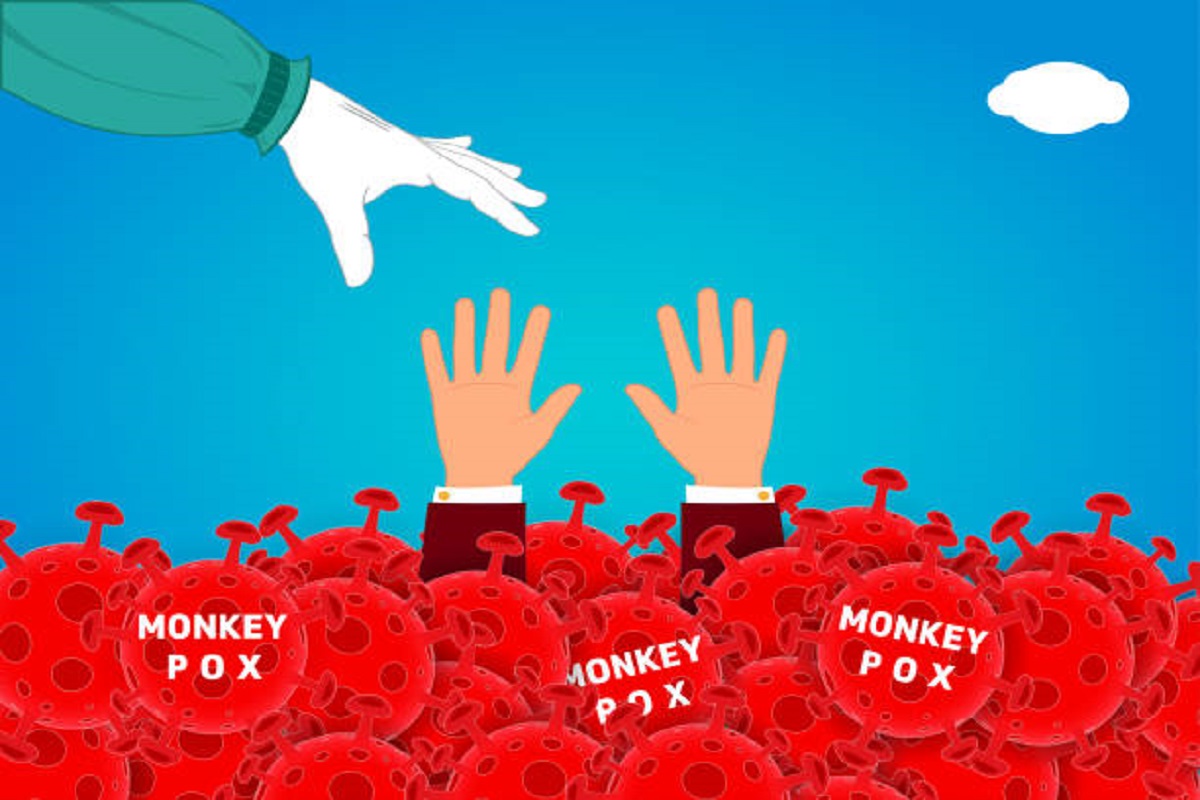Raising a kid is 18 years of prompt engineering: Musk
Raising a kid is 18 years of prompt engineering, said Tesla and SpaceX CEO Elon Musk on Wednesday.
Monkeypox virus usually spreads through close contact with an infected person like a parent hugging/kissing their child.

Monkeypox (Representational Image: iStock)
As the monkeypox virus continues to spread, Germany confirmed the first case in a four-year-old child. Even though the child was not in contact with anyone outside her household, she got infected with the virus.
The Lancet study released recently also mentioned that previous Monkeypox outbreaks had seen increased mortality and hospitalisation rates in children.
The study stated that those with an increased risk of bacterial superinfection, sepsis, keratitis, respiratory complications due to pharyngeal abscess and pneumonia, or encephalitis, are susceptible to the virus.
Advertisement
In view of the same, experts have advised parents to be concerned about their kids catching the virus and take a few precautions.
Here are some tips and advice from the doctors for children to keep monkeypox at bay.
Dr. Fazal Nabi, consultant pediatrician at Global Hospital, Parel Mumbai said, “If by any chance the child is infected from monkeypox, it remains contagious until the rash is fully resolved (scabs fall off and new skin has formed), which can take up to 2-4 weeks. Parents/caregivers should encourage infected children not to scratch skin lesions or touch their eyes.”
He said, “Children with monkeypox should avoid contact with other people and pets. If possible, one person should be the caregiver of a child with monkeypox and should avoid skin-to-skin contact with the rash.”
“Children who are at least 2 years of age and who have monkeypox should wear a well-fitting mask when interacting with a caregiver, and the caregiver should wear a respirator or well-fitting mask and gloves when skin contact with the child may occur, and when handling bandages or clothing, added the doctor,” he added.
Dr. Renuka Bajaj, Lab Head, and Senior microbiologist, American Institute of Pathology and Lab Sciences, Amritsar said, “While a new vaccine has been approved for the prevention of monkeypox, and the smallpox vaccine has also been demonstrated to provide protection, these vaccines are not yet available in India. “
She added, “The virus is found to live on objects like blankets so it would be advisable to regularly wash clothing and bedsheets of infected patients at high temperature. Another primary measure to control and prevent Monkeypox is contacting, tracing, and isolating. It is essential that people confirmed with monkeypox disclose their contacts so that the disease doesn’t spread.”
Compared with healthy adults, monkeypox-related complications are more frequent in children and people who are immunocompromised, noted an article in the medical journal The Lancet, Child and Adolescent Health titled: The Monkeypox outbreak: risks to children and pregnant women.
Elaborating the same, Dr. Avi Kumar, Senior Consultant, Pulmonology, Fortis Escorts, Okhla, New Delhi said, “Though it’s milder than smallpox disease, it can sometimes become severe in children, pregnant women, and immunocompromised people.
Here, awareness is the key to avoiding panic. Monkeypox virus usually spreads through close contact with an infected person like a parent hugging/kissing their child. As soon as an unusual pimple-like blister is identified on the face, palms, soles, throat, or genitals along with fever, or if you or your child come in contact with a possibly infected person, isolate the child and consult a doctor immediately.
The range of symptoms in kids commonly includes fever, blister-like rashes, swollen lymph nodes, and headache, which can last up to 2-3 weeks, before dried scabs fall off on their own. Thus, maintain isolation for at least 21 days.”*
Dr Amish K Vora, Pediatric and Neonatal Intensivist, ECLS Specialist, Consultant in Pediatric Intensive Care, Masina Hospital Mumbai advice to prevent children from getting in contact with monkeys, rodents, and sick animals.
“Consume only fully cooked meat, avoid close contact with people who have a rash that looks like monkeypox, and do not share eating utensils with an infected person. Antivirals, such as tecovirimat (TPOXX), may be recommended for people who are more likely to get severely ill, like patients with weakened immune systems.,” he added.
Advertisement